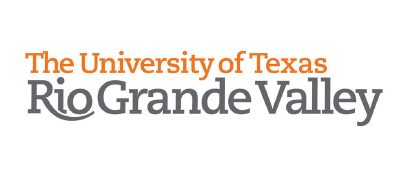McALLEN — A national accrediting agency ruled to keep the University of Texas Rio Grande Valley under probation for one more year during its annual meeting Tuesday, university officials said.
The Southern Association of Colleges and Schools Commission on Colleges initially cited violation of 10 of its principles of accreditation after placing UTRGV on probation in December 2016.
SACSCOC’s board reviewed the initial violations and announced UTRGV has successfully addressed their concerns.
On Tuesday, the accrediting institution cited the need to review the results of the 2016-17 Texas Statewide Single Audit — which focuses on financial aid awards — before removing UTRGV from probation.
The results of this audit should be available in February 2018, but the university’s probationary status will remain at least until SACSCOC’s next meeting in December 2018.
UTRGV remains fully accredited and able to award degrees, but this is the toughest sanction short of losing accreditation.
“This is again a timing issue,” said UTRGV President Guy Bailey who was present at SACSCOC’s Board meeting. “We think that if there are any issues in that they can be resolved just as we resolved the other issues that were raised last year.”
Review of this particular audit falls under the 4.7 section of SACSCOC’s Principles of Accreditation, which focuses on federal requirements under Title IV.
The item was not in the agency’s initial reasons why UTRGV’s probation was at stake. But the list of violations included a separate financial aid compliance review.
A committee assigned by the accrediting agency was tasked with visiting the university in October and evaluate the steps taken by UTRGV to solve the cited violations.
A report was sent to SACSCOC by the committee, which stated the institution was well-prepared for the visit and provided extensive material addressing the standards under review.
“UTRGV understands and has owned up to its previous errors related to accreditation standards,” the 24-page report states.
They also addressed the 4.7 section, stating the university was compliant with this section as well even if it wasn’t originally in question.
“The institution is in compliance with its program responsibilities under Title IV of the most recent Higher Education Act,” the committee’s review states. “Although SACSCOC Board of Trustees did not include the Federal Requirement 4.7 in the action letter to UTRGV, dated Jan. 11, 2017, without the annual single audit … there was no way to determine compliance with program responsibilities under Title IV.”
The committee was composed of five top university officials from across the country and one SACSCOC representative. And the report was one of the items considered by the accrediting agency’s board to determine UTRGV’s standing.
The agency had three options: removing the university from probation without an additional report; continuing probation and requesting an additional report; or removing the institution from accreditation.
The state audit reviewed by the visiting committee was released in 2016 for the 2015-16 school year. This was UTRGV’s first audit after transitioning from UT-Pan American and UT-Brownsville.
Part of the requirements of this audit included to strengthen the preparation of the state’s Schedule of Expenditures of Federal Awards to ensure accuracy as of its expenditures were misclassified.
Bailey said they were expecting to have issues to address as this audit focuses on mistakes on under or over-awarding financial aid and reporting issues. According to Bailey, these findings are common for all universities.
“Most of those issues were transition issues and had to do with the integration of Brownsville into UTRGV and the transition from UTPA to UTRGV,” he said.
Transitional issues were also at the core of the violations that led to the first year of probation. Documents obtained by The Monitor showed miscommunication on how the transition from two institutions into one was preserved.
SACSCOC saw it as a four-institution transition that included UTB, UTPA, UTRGV and Texas Southmost College, due to an agreement the college had with UTB to share accreditation.
UT officials were unable to dissolve UTB until TSC had its own accreditation, a process that took longer than expected, forcing them to first transition and dissolve UTPA and later integrate UTB.
This created problems in the eyes of the accrediting agency in institutional operations that included UTRGV awarding degrees under the new name while UTB was still an independent institution. The agency said, however, that this would not affect students.
Because these were transitional issues, however, there was not much that university could to do fix the errors, they explained at the time. What the agency asked for was proof that UTRGV had adequate procedures in place to avoid future issues.
“It’s policies and processes moving forward,” said Havidán Rodríguez, former UTRGV provost, after meeting with SACSCOC officials in January. “How do we ensure as an institution of higher education that this doesn’t happen again? Making sure that policies are in place… if you take a look at UTPA, we never had those issues with SACSCOC. If you look at UTB we never had those issues.”
As to what the university can anticipate next year, Bailey remains optimistic, stating he expects to have issues but nothing they can’t adequately address.
“When we get the report … we will look at it and all issues that are still there we will resolve and we will hire an independent auditing firm to verify it,” Bailey said. “It shouldn’t be a problem next year.”
This story has been updated to reflect that SACSCOC announced UTRGV has addressed original violations.





